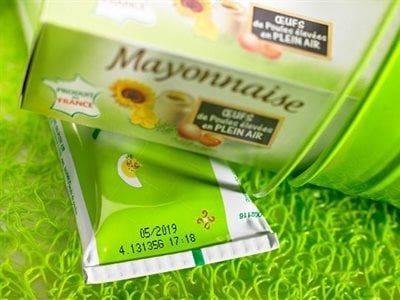BRAZIL – Leading global supplier of rigid packaging products, Crown Holdings, is leading the sustainable packaging movement in Brazil through its partnership with local suppliers.
Recently, in August, the company’s local subsidiary Crown Embalagens Metálicas da Amazônia S.A, partnered with Brazilian beverage producer, Socorro Bebidas (Socorro) to sustainably expand into the mineral water space.
Instead of plastic, which is de-facto package for water, Socorro opted for infinitely recyclable beverage cans from Crown.
The brand, Acquíssima, is currently available in supermarkets across Brazil in two SKUs: Personnalité (natural mineral water) and Passion (carbonated mineral water).
Both SKU are now available in 355ml (12oz.) sleek cans to support a premium, modern image that is in line with consumer demand for sustainable packaging.
A 2021 Global Buying Green Report found that 67% of consumers say it’s important that products they purchase be packaged in recyclable material, and 67% consider themselves environmentally aware—the same share as before the pandemic.
The sleek cans also include a matte varnish, adding a touch of elegance to the package and helping it stand out on store shelves.
The matte varnish was applied to the full body of the can to help boost a premium look and feel to attract consumer attention.
“We are thrilled to help Socorro launch the Acquíssima brand,” added Altair Frulane, Commercial Director of Crown. “Beverage cans are an ideal format for water brands thanks to their sustainability credentials, portability and ability to keep the product colder for longer periods of time.”
Socorro’s entry into the mineral water scene is a strategic move as still packaged water consumption per capita in Brazil has increased by 105% over the last decade and continues to take market share from tap and bulk water.
Socorro, as the brand with a robust social responsibility program in place wanted to do it the right way as moving the plastic bottle trend would have greatly impacted the environment and greatly impacted its carbon footprint.
Beverage cans have multiple inherent sustainability benefits, including providing a powerful barrier against light and oxygen, which will keep the water in the same fresh condition as when it was canned.
In addition to its functional benefits, aluminum cans are 100% and infinitely recyclable, making them a perfect example of the Circular Economy at work.
While Brazil already enjoys a high recycling rate for aluminum cans – consistently over 95% – the country recently joined Every Can Counts initiative to advance recycling even further.
The regional campaign, called Cada Lata Conta (Portuguese for “Every Can Counts) and led by Abralatas, will utilize public education and other activities to transform the way consumers think about recycling beverage cans.
Source:
















